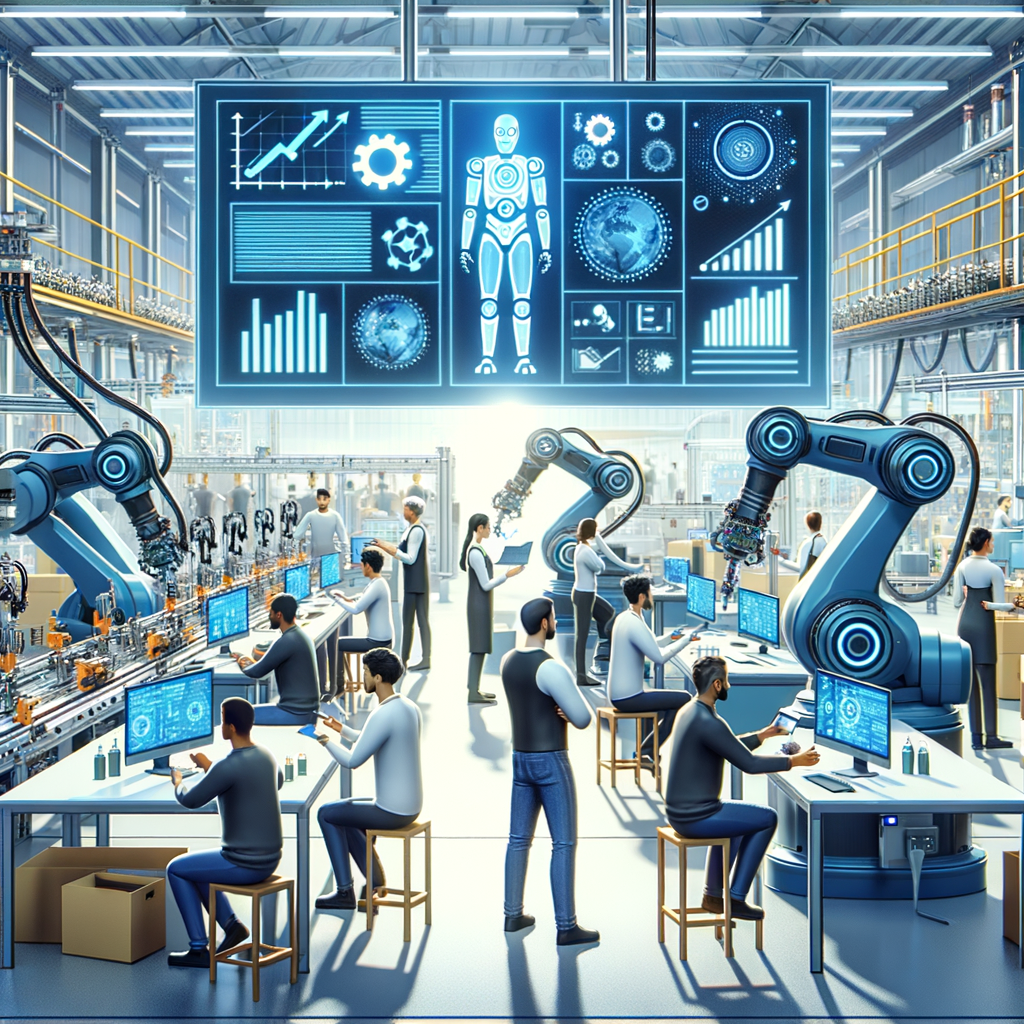Did you know that 91% of leading businesses have ongoing investments in artificial intelligence? The manufacturing sector stands at the forefront of this AI revolution, with smart factories expected to add $500 billion to $1.5 trillion to the global economy by 2024! I’ve seen firsthand how AI is revolutionizing traditional manufacturing processes, turning conventional factories into highly efficient, data-driven operations. Let’s explore this fascinating transformation that’s reshaping the industrial landscape.
Understanding AI in Modern Manufacturing
Just like how our smartphones have become smarter over the years, manufacturing facilities worldwide are experiencing a similar transformation. AI in manufacturing represents a sophisticated blend of computer systems that can learn, adapt, and make decisions – much like a highly experienced plant manager, but at an unprecedented scale and speed.
The journey from traditional manufacturing to AI-powered facilities has been remarkable. Remember those old assembly lines where everything was manual? Today’s factories are more like high-tech command centers. The market for AI in manufacturing, currently valued at billions of dollars, is expanding faster than a Tesla production line, with projections showing exponential growth through 2030.
Key Technologies Revolutionizing Manufacturing
Leading this industrial revolution are technologies like machine learning algorithms, computer vision systems, and neural networks. These work together like a well-orchestrated team, each playing their crucial role in transforming raw materials into finished products.
Core Applications of AI in Manufacturing
Predictive Maintenance: The Fortune Teller of Industry
Imagine having a crystal ball that could tell you exactly when a machine will need maintenance. That’s essentially what AI-powered predictive maintenance does. Just as your car’s computer tells you when it’s time for an oil change, these systems can predict equipment failures before they happen.
Quality Control: The Tireless Inspector
AI-powered quality control systems work like an eagle-eyed inspector who never gets tired. They can spot defects that would be invisible to the human eye, much like how medical AI can detect anomalies in X-rays.
Supply Chain and Inventory Management
Think of AI in supply chain management as a super-efficient personal shopper who always knows what you need, when you’ll need it, and the best way to get it. This system can predict demand patterns better than the most experienced procurement manager.
Process Automation and Robotics
Modern manufacturing facilities are increasingly resembling scenes from science fiction, with robots and AI systems working in perfect harmony. These systems are like orchestra members following an AI conductor.
Implementation Challenges and Solutions
Breaking Down Barriers
Just as the early days of computers faced resistance in offices, AI implementation in manufacturing faces its own hurdles. However, like any technological revolution, proper planning and strategy can overcome these challenges.
Building the Foundation
Implementing AI requires robust infrastructure, much like building a house needs a solid foundation. This includes everything from sensors to high-speed networks and powerful computing systems.
The Human Element
Transitioning to AI-powered manufacturing isn’t just about the technology – it’s about the people too. Training programs and change management strategies are crucial, similar to how businesses adapted to computer systems in the 1980s.
Benefits and Impact on Industry
The Productivity Revolution
AI-powered manufacturing facilities are showing productivity gains that would have seemed impossible just a decade ago. Think about how GPS changed navigation – that’s the level of impact AI is having on manufacturing efficiency.
Cost and Waste Reduction
By optimizing processes and predicting problems before they occur, AI systems are helping manufacturers save money in ways that traditional methods never could. It’s like having a financial advisor who can predict market trends with unprecedented accuracy.
Future Trends and Opportunities
The Next Wave of Innovation
Emerging technologies are pushing the boundaries of what’s possible in manufacturing. Digital twins, for instance, are like having a virtual clone of your entire factory that you can experiment with risk-free.
Sustainable Manufacturing
AI is playing a crucial role in making manufacturing more environmentally friendly, optimizing energy usage and reducing waste. It’s like having an environmental consultant working 24/7 to make your facility greener.
The Smart Factory Revolution
The factories of tomorrow will be more intelligent than ever, with AI systems coordinating everything from production to delivery. Imagine a facility that can think, learn, and adapt – that’s where we’re heading.
Conclusion
The integration of AI in manufacturing represents a pivotal shift in industrial production capabilities. As we’ve explored, from predictive maintenance to quality control, AI is not just enhancing manufacturing – it’s completely reimagining it. Ready to embrace this technological revolution? The future of manufacturing is here, and it’s powered by artificial intelligence!

